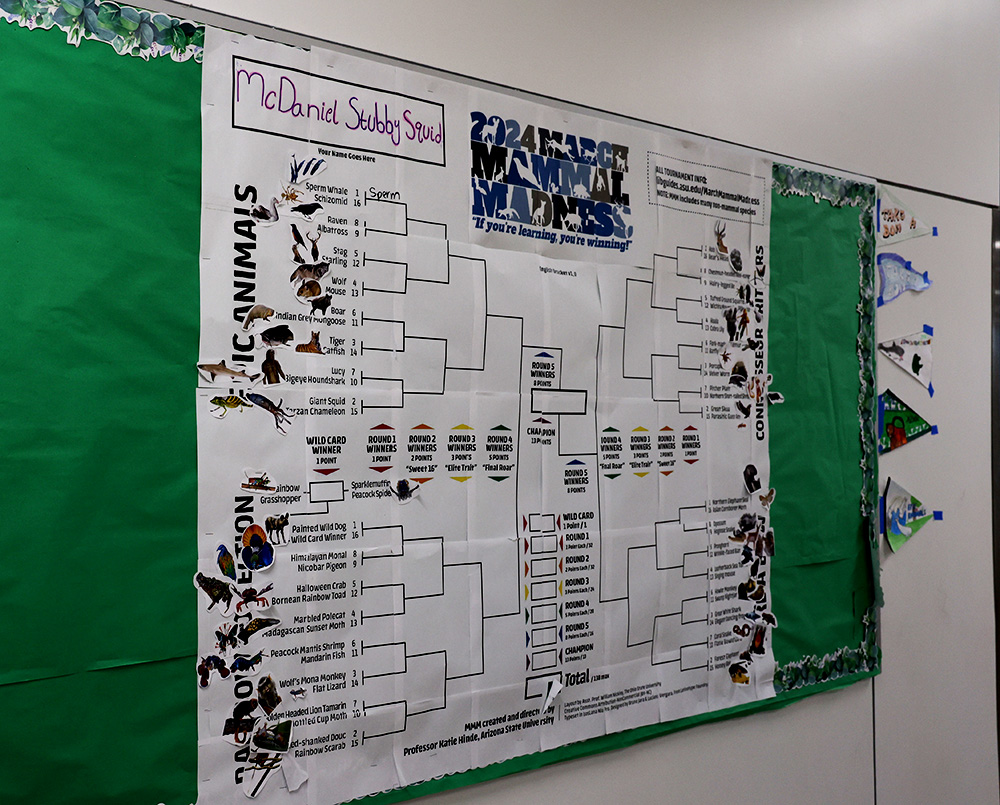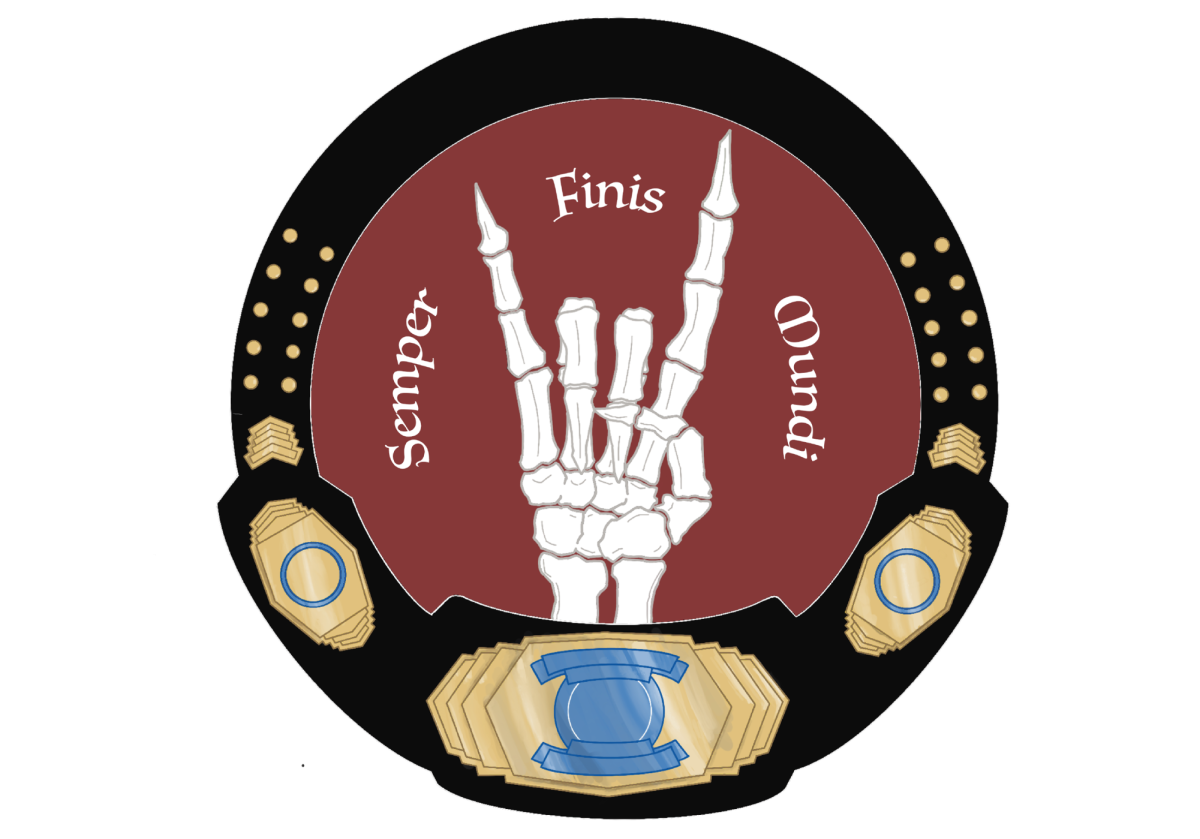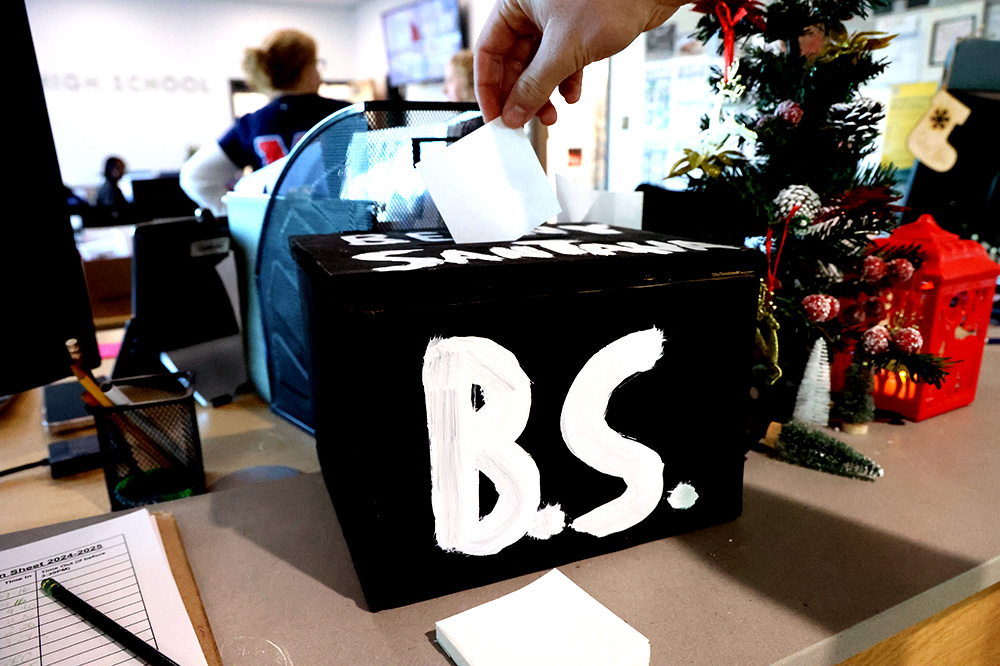If you or a friend is enrolled in (or has been enrolled in) Biology class, you probably have heard of March Mammal Madness (MMM). Similar to the college basketball tournament March Madness, it is a tournament compiled of 32 competitors—in this case, animals—and one wild card spot. This event started over a simple bet between teachers.
“The APES and AP Bio teachers love to bet, and what better way than to use students’ performance as an outlet for gambling,” biomed teacher Erik Mellgren said.
And so the competition began.
Each competitor is ranked in a 1-16 seed system on a scale from most to least likely to win their side of the bracket. Their likelihood of winning is determined by factors such as the animal’s body mass, speed and fight style.
During each round, the player with the higher rank in each match gets home field. In basketball this means home court, but in MMM, this means that they get their home habitat. Suppose that a sperm whale faces off against a house fly. If the sperm whale is ranked higher, it would have home habitat advantage and the two would face off in the ocean.
To kick off the tournament, the wild card match was scheduled for Mar. 11. In it, the Sparklemuffin Peacock Spider outlasted the Rainbow Grasshopper. When the spider was caught distracted by a female performing a mating dance, it started looking hopeful for the grasshopper. The show wasn’t over yet; it turned out that because it was not summer, the grasshopper’s egg had not yet hatched. Out of nowhere, a Meat Ant—almost twice as big as the spider—snuck up and began feasting on the grasshopper egg.
Biology teacher, Daniel Mesquiti, expressed his feeling towards this matchup,
“I was bothered that the spider won, I mean just look at the size difference…spiders are cool and all but the grasshopper was so much bigger than that little spider, ” Mesquiti said.
This shows how the unexpected should be expected during March Mammal Madness.
Many MMM fans were surprised at the unpredictable (seemingly unfair) outcomes of the matches.
“A bee beat an elephant, be for real!” junior Santana Apocaca said, expressing some rage at the wild results of some of the matches.
Many students filled out brackets, predicting a certain animal to win.
“I had [sea turtle]) going all the way until it lost,” junior Dean Lilliard said.
The tournament had lots of twists and unexpected turns that nobody could have predicted: the Mantis Shrimp unbelievably defeated the Monkey. Another crazy outcome was the Moth beating the Golden-Headed Lion Tamarin.
The semi finals were some exciting matchups. The first matchup was the Great White Shark vs. Skua, where they were randomly matched up in the neutral biome Tidewater glacier. The match ended in defeat for the Skua. The other semi-final was the African Painted Dog vs. the Giant Squid. This match ended with the fleeing of the painted dog, after it was released from the grasp of Giant Squid.
The winner of MMM 2024 was the Great White Shark! A long battle commenced between the shark and squid. At one point the shark had the squid clamped in its jaw. But moments later, a dead alligator knocked the squid from the shark’s grasp. Quickly fleeing the scene, the squid is eliminated by default because any player who leaves the battlefield automatically loses.
AP Biology and AP environmental science competed to see whose students could predict more accurate results.
“We had a trophy ceremony in my classes and awarded prizes,” Mellgren said.
AP Biology won their competition and their class was awarded a slime party.
Mellgren added that the final moments of the tournament were devastating.
“I had squid as my champion, and the fact that their fight was interrupted by an alligator dropping down from a research festival, totally unacceptable,” Mellgren said.
Many spectators were frustrated with the interference of outside forces in the battles.
“I hope next year there is not as much output from third parties,” Mesquiti said.
If readers want to share their winning brackets, they can email us at [email protected].








